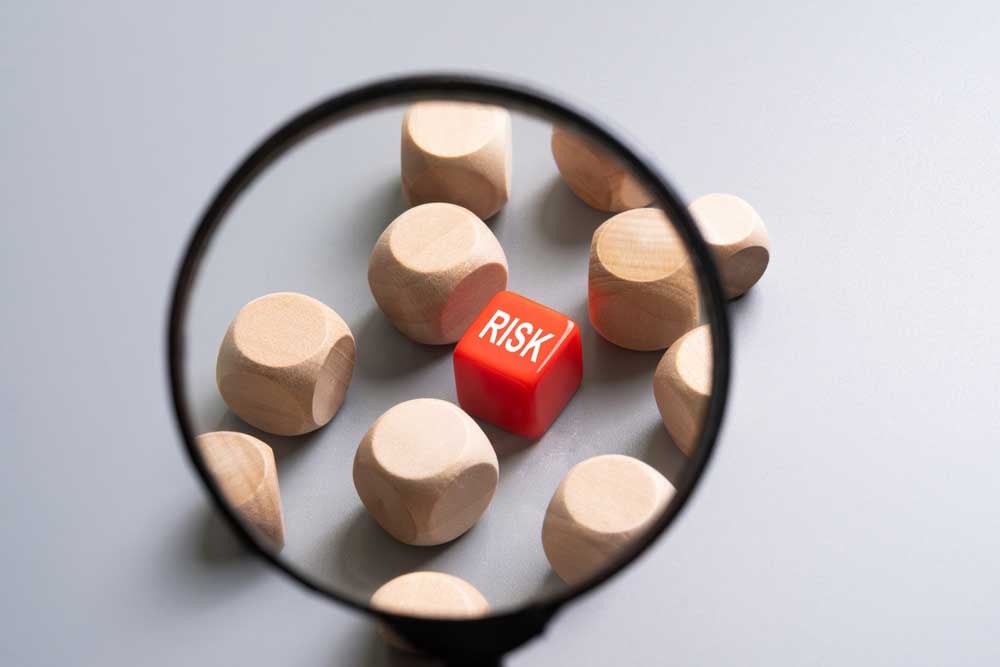
What is Risk Management and Why Do You Need It?

Whether you're a small business owner navigating local market fluctuations, a CEO strategizing for global expansion, an entrepreneur stepping into a highly competitive arena, or running a startup looking to disrupt traditional industries, having a solid risk management strategy in place is indispensable. The ability to identify, assess, and mitigate risks can significantly impact the resilience and growth trajectory of any business. It's not just about preventing potential threats; it's about positioning your organization to respond adaptively and maintain operational stability in the face of unforeseen challenges. This proactive approach to risk management can make all the difference in ensuring the long-term success and sustainability of your organization, securing its place in a competitive market landscape.
At its core, risk management is about identifying potential threats to your business and taking proactive steps to minimize their impact or prevent them from occurring altogether. It's an ongoing process that requires continuous monitoring, assessment, and adaptation as new risks emerge and your business evolves.
The Value of External Risk Assessments
Bringing in someone from outside your company to audit and provide a risk assessment can be a game-changer in fortifying your business against potential pitfalls. This person, with their unique perspective and expertise, can often spot vulnerabilities and opportunities for improvement that might go unnoticed by those deeply entrenched in the day-to-day operations of the business.
When you're close to something, it's easy to miss what's staring you right in the face; an external risk assessor brings fresh eyes and can uncover hidden issues before they escalate. Their objective standpoint helps in identifying the areas where your business is most susceptible, ensuring that no stone is left unturned in safeguarding your venture's future. By welcoming this external scrutiny by a trusted and trained advisor, you demonstrate a sincere commitment to resilience and growth, nurturing a stronger, more prepared organization ready to face whatever challenges come its way.
Ensuring Adequate Insurance through Risk Assessment
One of the most practical outcomes of a thorough risk assessment is finding the right balance in your insurance coverage. Indeed, it's crucial to have sufficient protection against potential risks without overburdening your financial resources with unnecessary premiums. Through regular and comprehensive risk assessments, you can tailor your insurance policies to reflect the current state and needs of your business, ensuring you're neither underinsured nor overinsured.
When your business undergoes significant changes — be it scaling up operations to seize new market opportunities or downsizing in response to industry trends — your risk profile changes accordingly. Regular audits serve as a critical tool in adjusting your insurance coverage to match these shifts. This dynamic approach prevents the distress of finding out you're underinsured when a crisis hits, which can be a defining moment for the survival of your business. Conversely, it also avoids the wastefulness of paying for coverages that no longer align with your business operations or risk exposure.
Adopting this proactive stance not only safeguards the financial well-being of your business but also reflects a deep understanding of responsible stewardship towards your assets and the community you serve. It's about making thoughtful, informed decisions that prepare you for the uncertainties of tomorrow, ensuring that as your business evolves, your safety net evolves with it. This caring, community-oriented approach to managing risk reinforces the resilience and sustainability of your business, laying a solid foundation for future growth and success.
Why is Risk Management So Important for Your Business?
-
Protects Your Assets:
By identifying and mitigating risks, you can safeguard your company's financial assets, physical property, and intellectual property from loss or damage. -
Ensures Business Continuity:
A well-designed risk management plan helps ensure that your business can continue operating even in the face of unexpected disruptions or crises. -
Enhances Decision Making:
Risk management provides a framework for making informed, data-driven decisions that take into account potential risks and rewards. -
Builds Trust with Stakeholders:
Demonstrating a commitment to risk management can help build trust with investors, customers, employees, and other key stakeholders. -
Supports Compliance:
Many industries have specific regulatory requirements around risk management that businesses must adhere to.
Common Risks Faced by Businesses in Today's Environment
While every business faces unique risks depending on its industry, size, and location, some common risks that many organizations need to navigate include:
-
Digital Risks:
As society grows more reliant on technology for both personal and professional tasks, the threat level of cyber attacks, data breaches, and other digital risks becomes significantly elevated. This increasing dependence not only makes our information more accessible but also presents more opportunities for malicious entities to exploit vulnerabilities, highlighting the urgent need for enhanced cybersecurity measures. -
Physical Risks:
Natural disasters, including floods, hurricanes, and wildfires, represent substantial risks to both physical assets and the continuity of operations. These catastrophic events can cause extensive damage to infrastructure, disrupt supply chains, and lead to significant financial losses for businesses and communities alike. Preparing and implementing effective disaster management strategies is crucial to mitigate these risks and ensure resilience in the face of nature's unpredictability. -
Financial Risks:
Economic uncertainty, characterized by unpredictable fluctuations in global markets, along with market volatility, which includes rapid changes in asset values, and significant shifts in consumer behavior, such as changing spending habits and preferences, represent key financial risks to businesses. These factors can greatly impact a company's revenue streams, cost structures, and overall financial health. -
Compliance Risks:
Legal risks arise when an organization fails to adhere to applicable laws, regulations, and industry standards, potentially resulting in significant fines, legal disputes, and damage to its reputation. These risks can vary by industry and geographical location, making it crucial for businesses to thoroughly understand and comply with all relevant legal requirements to mitigate potential liabilities and avoid adverse outcomes. -
Human Risks:
Challenges such as employee misconduct, which includes unethical behavior or violation of company policies, workplace accidents that may lead to injuries or significant downtime, and high turnover rates, which can result in lost productivity and increased training costs, are all examples of human-related risks that can significantly impact a company's bottom line. These issues not only affect financial performance but also can damage an organization's reputation and employee morale.
Strategies for Effective Risk Management
So how can you effectively manage risks in your business? Here are some key strategies to consider:
-
Conduct Regular Risk Assessments:
Regularly assess your business to identify potential risks and vulnerabilities. This can involve both internal reviews and professional external audits. -
Develop a Risk Management Plan:
Based on your risk assessments, develop a comprehensive plan outlining how you will prevent, mitigate, and respond to various risks. -
Implement Risk Controls:
Put in place specific controls and measures to minimize identified risks. This can include things like employee training, security systems, insurance policies, and contingency plans. -
Foster a Risk-Aware Culture:
Make risk management a core part of your company culture. Educate employees about risks and their role in mitigating them, and encourage open communication about potential issues. -
Monitor and Review:
Continuously monitor your risk management processes and adjust your strategies as needed based on new information or changing circumstances.
The Future of Risk Management: Preparing Your Business
As the risk landscape continues to evolve, businesses need to be proactive in adapting their risk management strategies. Some key trends and areas to focus on going forward include:
-
Leveraging Data and Analytics:
As more risk-related data becomes available, businesses will need to leverage advanced analytics and AI to gain insights and make data-driven decisions. -
Increased Collaboration:
Risk management will increasingly require collaboration and information sharing across teams, departments, and even between organizations. -
Greater Agility:
Businesses will need to develop more agile risk management processes that can quickly adapt to changing circumstances and new threats. -
Holistic Approaches:
Organizations will need to take a more holistic view of risk, looking at how various types of risk intersect and impact each other.
Effective risk management is no longer a nice-to-have, but a critical necessity for businesses of all sizes. By understanding the risks you face, implementing proven strategies and tools, and continuously adapting your approach, you can protect your organization and set it up for long-term success.
If you're looking to optimize your business risk management, the 4sight™ process from WInter-Dent can help. Our comprehensive risk assessment takes into account digital risk, physical risk, financial risk, and compliance risk to create a customized business risk profile. With this powerful tool, you can make informed decisions to mitigate threats and seize opportunities. Contact us today to learn more and take control of your risk management strategy.





